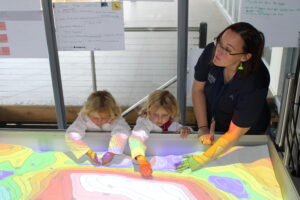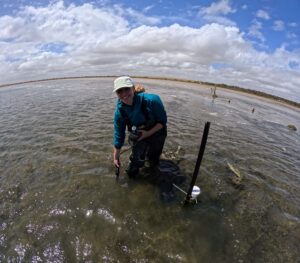South Australia’s climate is changing. The Goyder Institute’s Climate Ready project developed downscaled climate projections for South Australia’s regions. It highlighted that South Australia will become hotter and drier, with more frequent and intense extreme weather events as the climate changes. This poses significant challenges and opportunities for the state, and as such the Goyder Institute welcomes the South Australian Government Climate Change Action Plan 2021–2025, which was released late last year. The Action Plan describes government-led objectives and actions to help to build a strong, climate smart economy, further reduce greenhouse gas emissions, and support South Australia to adapt to a changing climate.
A key objective of the Action Plan is to ensure secure, climate resilient regional and urban water supplies. These are future focus areas for the Institute, including through the ONE Basin CRC, along with further work on carbon sequestration and climate adaptation that have also been identified as priorities in the Action Plan. Future work will build on recent projects of the Institute that:
• created tools to identify ways to address climate-related vulnerabilities in water systems (CRAFT)
• investigated opportunities for offsetting greenhouse gas emissions (Carbon Offsets)
• outlined the impacts of coastal restoration, management, and human activities on the carbon offset potential of coastal habitats and informed the State’s Blue Carbon Strategy (Coastal–C and Salt to C)
• researched carbon offset potential of increasing soil organic carbon in clay-modified soils (Soil-C).
The Action Plan is supported by the Climate Change Science and Knowledge Plan for South Australia that identifies the science and information needed to implement a whole-of-government climate change strategy. The Science and Knowledge Plan was informed by a DEW and Goyder Institute project that identified the types of science and information needed to inform priority decisions for five sectors: emergency management, health, primary industries, infrastructure, and natural resource management.
The project, led by Graham Green (DEW) and Mark Siebentritt (Edge Environment), included a series of climate change workshops and consultation involving more than 120 representatives from the emergency management; health; infrastructure; primary production; and sustainable landscapes sectors to gather information. The workshop series was designed to understand the decisions being made in each sector to respond or adapt to climate change; the current knowledge gaps and barriers to ‘climate-sensitive’ decisions; information types sectors most commonly seek; and the issues preventing use of existing information.
These projects are all great examples of the Institute’s collaborative and partnering approach in action, bringing government, community groups, industry and researchers together to better understand their issues and then assembling the best scientists from across institutions and scientific disciplines to address them.
You can read the Climate Change Science and Knowledge Plan here or find out more about the workshop participant’s responses in the Institute’s Cross-sectoral Consultation Workshops Summary Report. Contact Goyder Institute Director Dr Kane Aldridge to talk about collaborative opportunities with the Institute.


